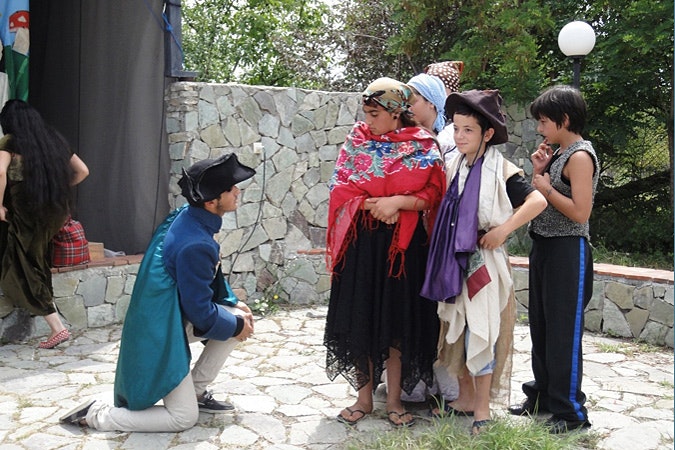Supporting Diversity in the South Caucasus
By Kate Lapham

The South Caucasus, at the crossroads of Europe and Asia, have a rich history of diversity and unique cultures. Too often in recent memory this diversity has led to conflict. Since 1991 armed conflict between Armenia and Azerbaijan, unrest in Abkhazia, and a brief war between Russia and Georgia in 2008, have led to displaced communities, migration, contracting economies and unemployment in many parts of the region. This displacement has decidedly negative consequences for the region’s children who suffer disproportionately from the resulting poverty and unrest experienced by their families. Governments in the region have a mixed record addressing these issues. Education systems can deepen the lines of social conflict both inadvertently and deliberately.
A good place to begin to try to right the wrongs of twenty years of turmoil is the provision of access to high-quality inclusive education that celebrates diversity and supports individual children with a variety of education needs and family circumstances. This will require serious investment and consistent policy support but its benefits are great. Full inclusion of young people from the South Caucasus into society will enable them to contribute to the development of their countries.
Aiming to further this goal, the Open Society Education Support Program and the Austrian Development Agency have provided support for Common Kids, a joint project of Bridge of Hope in Armenia, Beryllus in Georgia, and Interkulturelles Zentrum. Common Kids addresses the challenges of children who are left out of the education system as a result of disability, ethnicity, or membership in a minority language group.
Common Kids is designed to improve the situation of vulnerable children and young people aged between seven and 16 years old, as well as their families, in Georgia and Armenia. It aims to do this through fostering their inclusion in the local community. In Georgia, Common Kids works with Roma and Meshketian children. Roma, one of Europe’s largest minorities, regularly face exclusion and marginalization. The Meskhetians are a Turkish speaking population of the Muslim faith that was collectively deported from their original homeland in the Georgian Soviet Republic by Stalin during World War II. The return and integration of Meskhetians over the years has been low on the political agenda. While larger groups, like the Armenian and Azerbaijani minorities in Georgia, have diaspora NGOs and diplomatic support from outside, these smaller stateless groups lack similar support.
By working towards the integration of individual children, Common Kids also hopes to help the inclusion of whole Roma and Meshketian communities in the greater village or city community. This is especially important since research carried out by Open Society Georgia Foundation found that young people are increasingly intolerant of religious minorities. The project builds on the experience of Bridge of Hope and Beryllus as founding members of Open Society Foundation‘s Education Cooperation across the Caucasus Initiative.
The project is designed around community clubs offering educational workshops and summer camps for vulnerable children in eight different communities in Armenia and Georgia. At the end of July, the Common Kids summer camp for Georgian, Roma, and Meshketian children took place an hour outside of Tbilisi in the Caucasus mountains.
The children spent their days playing sports, working on art projects, and learning strategies for coping with conflict in school. The children at the camp face bullying or other forms of social exclusion in school as a result of their ethnicity. They may also find classroom curricula difficult if their families do not speak Georgian, the language of instruction, at home. One of the approaches used to mitigate these problems was the pairing of participants with a peer mentor from the group. The pair can then maintain contact by mobile phone and Facebook throughout the school year and offer both academic and social support when needed.
For this year’s young participants, the experience was a formative one. The group of 28 children became close during the camp, finding encouragement through sharing experiences and insights. "I met lots of new friends in Summer School ... they live in a village which is not located too far from us but we have never had a chance to meet them because we live in the high mountain region” said one of the young participants from Fshavi public school in Georgia. “During 12 days we lived, played and learned together. At the end of the summer school each of us realized how much potential we have and how we have never thought about how to use it correctly."
By changing the outlook of younger people, encouraging inclusion and championing not castigating difference, the diversity of the South Caucasus can once more be its strength and not its weakness. There is no better place to begin this change than in classrooms around the region.

Until November 2021, Kate Lapham was the deputy director of the Open Society Education Support Program.